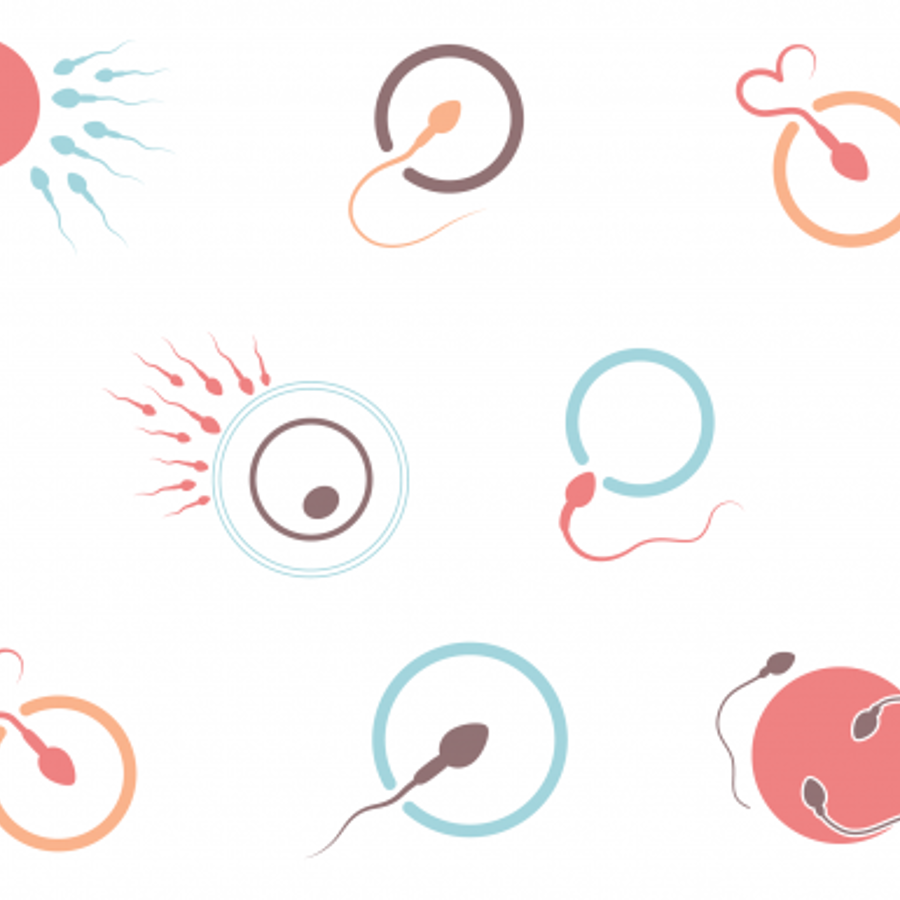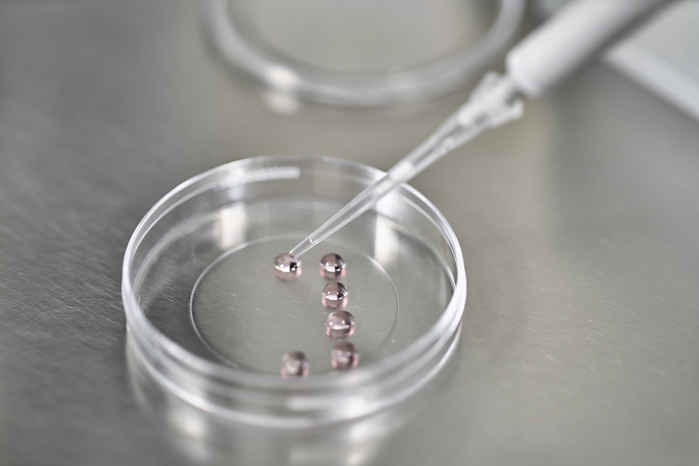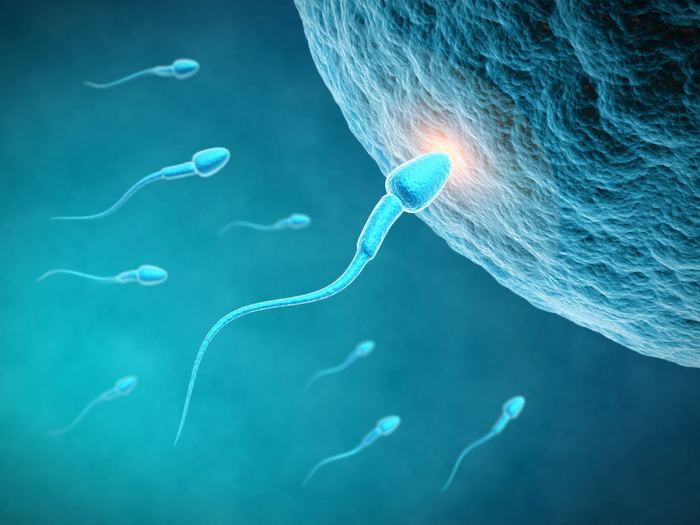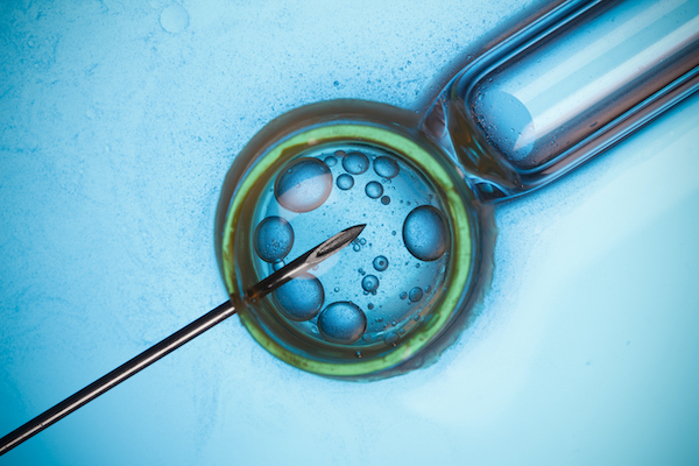
How common are genetic abnormalities when conceiving via intracytoplasmic sperm injection?
November 17, 2010

- Related Topic:
- Reproduction
A curious adult from California asks:
"I have heard that the ART (artificial reproductive technology) procedure ICSI, where a sperm is injected directly into an egg, can result in genetic abnormalities in the resulting fetus. Can you tell me about them? How common are they?"
Yes, ICSI babies do have slightly more genetic problems than IVF or naturally conceived children. But it is unclear whether this is because of ICSI or the sperm used.
See, ICSI is used in special cases where couples are having a hard time getting pregnant. ICSI is often used when the male has a genetic issue himself and/or makes few or weak sperm cells. Each of these problems can increase the chances for a child with genetic problems. Because of this, it is hard to know if the increased risk is due to an increased likelihood that the sperm are abnormal or if it’s due to the procedure itself.
To explain where the problems might come from, here's some background. ICSI is a special form of IVF (in vitro fertilization). In vitro means that eggs are fertilized in a lab rather than in a uterus. This is traditionally achieved by simply incubating an egg with lots of sperm.
One of the sperm cells then fertilizes the egg, which grows into an embryo. After a few days, one or more of the embryos are placed back in the mother's uterus.

IVF was developed over 30 years ago and is now commonly used for couples who are having difficulty getting pregnant. Sometimes, however, a male’s sperm is not strong enough to fertilize the egg, or a woman might have very few eggs. Then IVF won't work. This is because IVF requires many eggs, and still requires that the sperm penetrate the egg(s) to fertilize them, just as they would if conceiving naturally.
In those cases where weak sperm or few eggs are an issue, ICSI can be used. ICSI stands for intracytoplasmic sperm injection. With ICSI, a single sperm is directly injected into an egg. This can lead to fertilization even in cases where normal IVF would not. ICSI has thus become a very popular technique.
But it is not a technique without some risks. Although studies disagree on the why, they all agree that individuals conceived via ICSI are at a slightly higher risk for various genetic problems. What they can't figure out is whether the source of this risk is the sperm or the technique.
Nature vs the Machine
Men who have to use ICSI to conceive often have infertility problems. And that infertility is often caused by underlying genetic alterations. Something about their DNA may make their sperm weaker (slower swimming, less able to penetrate an egg), which may be the source of the increased risk for genetic problems in their children.
As I mentioned, ICSI is often used in cases where sperm is struggling to fertilize an egg. This is different from natural fertilization or even IVF, because there is no competition between sperm.
Sperm competition is an important tool to increase the likelihood that the sperm that ultimately fertilizes the egg is healthy. This is because sperm that are carrying genetic mutations are typically “weaker” than ones that aren’t. And weaker sperm are less likely to be the first to puncture an egg and fertilize it.

It’s important to note, that while studies have been done to assess if lack of sperm competition is to blame for ICSI-resulting genetic abnormalities, they often disagree.
Another possible reason for the increased risk of genetic abnormalities in ICSI is due to the actual mechanics of the technique.
During most assisted reproductive technologies, sperm and egg cells are handled and manipulated. With ICSI, egg cells are poked with a needle in order to directly inject the single sperm. And it’s possible that this has repercussions on the health of the resulting fetus.
The Small but Real Risks of ICSI
As you can see, there are several possible reasons why children conceived via ICSI are more likely to have a genetic abnormality. What I’d like to do for the rest of the article is give you an idea of what those consequences are and just how common they are.
One type of genetic abnormality that is increased in ICSI is sex chromosome defects.With ICSI, sex chromosome defects occur in about 0.8% of cases. This is about 4 times the frequency of naturally conceived embryos. As you can see, there is an increased risk but the overall risk is still very small.
Another common problem is when cells are either missing some DNA or have too much of it. For example, infertile men are sometimes missing parts of their Y chromosome that are needed for making sperm. A child of this father conceived with ICSI can inherit this problem.

With regard to congenital malformations, a study found that children conceived via ICSI were not significantly more likely to be born with a malformation compared to children conceived naturally.
So, yes ICSI kids have a small increase in genetic problems. However, the vast majority of ICSI kids appear to be healthy and without genetic defects. Most people who use ICSI have no other means of conceiving biological children. For them, ICSI appears to be a good option with a relatively low risk.

Author: Dr. Hinco Gierman
When this answer was published in 2010, Hinco was a postdoctoral fellow in the Department of Developmental Biology, studying the genetics of human aging in Stuart Kim's laboratory. He wrote this answer while participating in the Stanford at The Tech program.
 Skip Navigation
Skip Navigation
